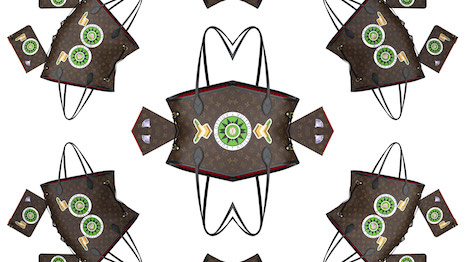- About
- Subscribe Now
- New York,
August 3, 2017

 Counterfeits sold through Alibaba have grown since the institution of the Anti-Counterfeiting Alliance. Image credit: Louis Vuitton
Counterfeits sold through Alibaba have grown since the institution of the Anti-Counterfeiting Alliance. Image credit: Louis Vuitton
In January of this year, Alibaba founder Jack Ma announced the formation of an Anti-Counterfeiting Alliance with brands including Louis Vuitton and Swarovski, but the coalition has done little to curb the sale of counterfeit luxury goods on the Chinese ecommerce site.
Since the announcement, Mr. Ma and Alibaba have been notably silent on the anti-counterfeiting measures. Meanwhile, the number of counterfeit goods sold through the brand’s eBay-like marketplace Taobao has grown.
"It is an extraordinarily large and complex issue. Counterfeiters are getting increasingly sophisticated, better at copying and swifter in manufacturing," Rania Sedhom, managing partner, Sedhom Law Group, New York. "As such, it is nearly impossible for luxury brands to keep up with them and the resulting costs of protecting luxury IP is substantially higher.
"Just as soon as one counterfeiter is stopped and one online store removed, two or three more pop up instead," she said. "Luxury brands need to dedicate a substantial amount of money and time to track their products and need to use technological advances to their benefit to protect their reputations, their brands and their scarcity."
Anti-Counterfeiting Alliance
Counterfeit products are a major threat to the luxury industry.
As counterfeiters become increasingly adept at creating convincing fakes, the danger for brands to lose out on huge amounts of sales grows.
The proliferation of fakes is also aided by the rise of online marketplaces where the veracity of a product is difficult to vet before purchasing.
Popular U.S. marketplaces, such as eBay, have been facing this problem for years, and have created robust systems to address the issue.
eBay's authentication process. Image credit: eBay
Alibaba, on the other hand, has been relatively lax in its addressing the problem. The creation of an anti-counterfeiting team is a good start, but many are skeptical given comments that Mr. Ma made in regards to counterfeits last year.
"I think the answer here lies in Mr. Ma’s 2016 comment about fake products being just as good, or even better than the originals they copy," Ms. Sedhom said. "While Mr. Ma has attempted to retract that comment through some of his actions, he likely meant what he said about the counterfeited products.
"After all, he didn’t make that comment in a room with limited attendees during a passionate debate; he made it publicly during an interview where he was the sole person being interviewed," she said.
This seemingly cavalier attitude toward counterfeit products is not being helped by the fact that counterfeit products sold through Alibaba's Taobao are estimated to have grown by 15 percent in 2017 alone.
Convincing fakes
The brands that are working to prevent counterfeiting should be applauded.
Counterfeiters are becoming more sophisticated and consumers today have greater access to fake goods, contributing to a business that is $500 billion and growing. By ignoring the problem, brands are only doing themselves a disservice as their brand is diluted and consumers feel they are buying into a less exclusive label (see story).
That Louis Vuitton is among those represented in Alibaba’s anti-counterfeiting alliance is unsurprising given the hard tack the company has taken against fakes.
LVMH's wine and spirits branch Moët Hennessy took a major step forward in its fight against counterfeiting and protecting consumers with its recent court case win.
The High Court of the Hong Kong Special Administrative Region ruled in favor of the luxury goods conglomerate for a counterfeit case in regards to its Champagne brand Krug. In wake of the ruling, auction house Acker Merrall & Condit has been ordered to readjust its authentication process (see story).
That Alibaba has been seemingly quite lax about counterfeiting is troubling. The potential consequences are absolutely worth the trouble of taking a clear stance against counterfeiting and instituting measures to stop it.
"Brand dilution and consumer boredom are the main concerns" Ms. Sedhom said. "Counterfeiters are copying everything from vintage to limited-edition styles.
"While brand dilution is upsetting, consumer boredom can be crippling," she said. "Imagine a VIP paying a premium for a limited-edition piece only to find hundreds of other people with the same product?
"Or, being told that something was one of a kind, only to find that others are in possession of the 'same' product? What can remain truly special if it is continually copied and saturates the market?"
Share your thoughts. Click here